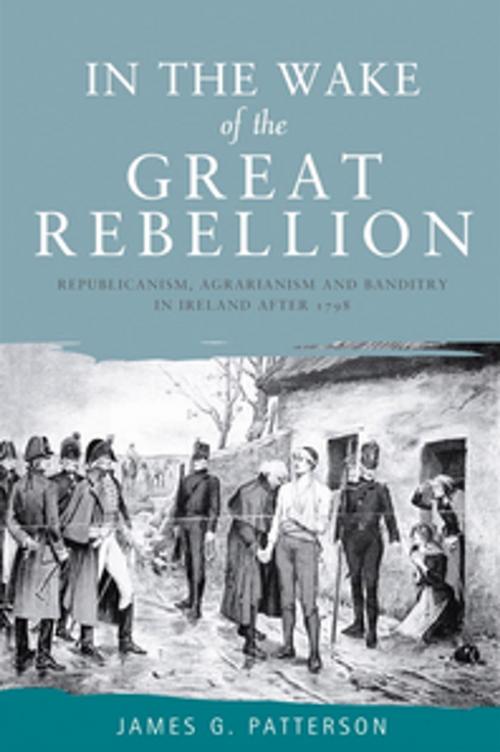In the wake of the great rebellion
Republicanism, agrarianism and banditry in Ireland after 1798
Nonfiction, History, France, Modern| Author: | James Patterson | ISBN: | 9781847797056 |
| Publisher: | Manchester University Press | Publication: | July 19, 2013 |
| Imprint: | Manchester University Press | Language: | English |
| Author: | James Patterson |
| ISBN: | 9781847797056 |
| Publisher: | Manchester University Press |
| Publication: | July 19, 2013 |
| Imprint: | Manchester University Press |
| Language: | English |
On Monday 19 September 1803, the most significant trial in the history of Ireland took place in Dublin. At the dock stood a twenty-five year old former Trinity College student and doctor’s son. His name was Robert Emmet and he was standing trial for heading a rebellion on 23 July 1803. The iconic power of Robert Emmet in Irish history cannot be overstated. Emmet looms large in narratives of the past, yet the rebellion, which he led, remains to be fully contextualised. Patterson’s book repairs this omission and explains the complex process of politicisation and revolutionary activity extending into the 1800s. He details the radicalisation of the grass roots, their para-militarism and engagement in secret societies. Drawing on an intriguing range of sources, Patterson offers a comprehensive insight into a relatively neglected period of history. This work is of particular significance to undergraduate and post-graduate students and lecturers of Irish history.
On Monday 19 September 1803, the most significant trial in the history of Ireland took place in Dublin. At the dock stood a twenty-five year old former Trinity College student and doctor’s son. His name was Robert Emmet and he was standing trial for heading a rebellion on 23 July 1803. The iconic power of Robert Emmet in Irish history cannot be overstated. Emmet looms large in narratives of the past, yet the rebellion, which he led, remains to be fully contextualised. Patterson’s book repairs this omission and explains the complex process of politicisation and revolutionary activity extending into the 1800s. He details the radicalisation of the grass roots, their para-militarism and engagement in secret societies. Drawing on an intriguing range of sources, Patterson offers a comprehensive insight into a relatively neglected period of history. This work is of particular significance to undergraduate and post-graduate students and lecturers of Irish history.















